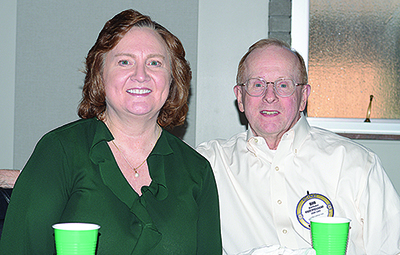A local view on Artificial Intelligence before RCF

About AI, “people think it’s a little space age, science fiction, that it’s in Chat TV and so forth,” she said. “I think there’s not as much recognition of how much AI is already being used today.
“It’s in so many different kinds of products, going back to just the search engines or Goggle Maps we’re all using now on our smart phones; Siri, there’s Google Translator,” added Parker, who recently completed a four-year post as deputy U.S. chief technology officer and director of National Artificial Intelligence Initiative office in the White House. “All of this is AI … in medicine and healthcare, there’s more and more use of AI there as well.
In addition, “Smart home devices are based on AI,” she said, adding AI also includes personalized learning, which trains students in areas in which they are not particularly strong because “AI can pick up on where those gaps are.”
AI also includes driver assist capabilities on vehicles, as well as precision agriculture, with which a farmer can water a particular field.
“These kind of tools are out there,” Parker said. “AI is real and is here today and has been around for 10, 12 or 15 years. “There a huge numbers of applications, and nearly every sector of the economy and of society, AI is being useful.
“By 2030 AI’s market size in just the United States is predicted to be $1.8 trillion,” she added. “Today we can’t envision all of the applications for AI, but it will be huge.”
“People often wonder why is it, in the last year or so, we hear about AI. I spent four years in the U.S. White House assigned to technology policy, from 2018 to 2022.”
When she first arrived in 2018, “It was extraordinarily rare to ever hear the term, artificial intelligence on the news,” Parker recalled.
Now, “it’s so pervasive.”
And yet, she observed, “American students rank among the lowest worldwide in the use of AI tools. Our country and young people had better get up to speed on AI or our country will drop behind more than we are now.
“AI will disrupt nearly every industry and state in the United States,” Parker added. “As for job losses, some of that will be happening. AI may augment jobs or replace people.
“More than 500,000 jobs in Tennessee are expected to be augmented or replaced by AI. Keep in mind that 60 percent of today’s workers are in occupations that didn’t exist in 1940.”
Still, with the use of AI comes ethical implications and subsequent national policies to address those implications.


